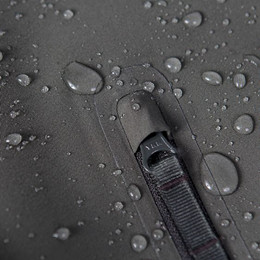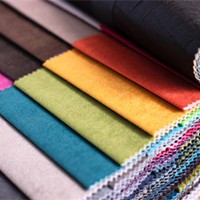XJY-701
Polymethylhydrosiloxane
PIONEER IN SILICONE RESIN
XJY-701, XJY-702, and XJY-707 silicone products are used to make special textile finishing agents and textile softeners.

1. Pre-production samples for all orders before production starts
2. Free packaging services
3. Precision manufacturing on branded CNC equipment
4. Experienced engineers to monitor the entire production process
5. Stable after-sales service
6. 24-hour warehousing service and logistics support
7. Wholesale and retail experience
8. Quality control, including raw material incoming inspection, process intermediate product inspection, finished product factory full analysis inspection
9. Invest more than 12% of sales in R&D each year
Textile softener is a kind of textile auxiliary, which can adsorb on the surface of industrial textiles fibers and smooth the fibers, which can change the hand feeling and make the product more comfortable. Among them, silicone softener is a kind of softener with superior performance, outstanding effect and wide application. This type of softener is an emulsion or microemulsion of polysiloxane and its derivatives, which not only makes the textiles soft and smooth but also has good breathability, surface gloss, wear-resistance, wearing comfort, water repellent, high-temperature resistance, anti-ultraviolet and other functions; in addition, such materials are non-toxic and harmless, friendly to the human body and environment, low cost, suitable for different textiles, and have broad application prospects.
![]()
![]()
![]()
How to choose silicone products for fabric and textile?
XJY-701 Polymethylhydrosiloxane, XJY-702 Methylhydrosiloxane Dimethylsiloxane Copolymer, XJY-707 Hydride Terminated Polydimethylsiloxane, and other products can be used to make softeners. The active -H group in such hydrogen-containing silicone oils can be used to make interrupted silicone softeners or polyether-modified silicone oils.
Silicone water repellent adhesive is a silicone polymer compound that is uniformly coated on the surface of the fabric. It forms one or more films on the surface of the fabric by bonding. It can not only improve the appearance and style of the fabric, but also increase the function of the fabric so that the fabric has special functions such as waterproof, water pressure resistance, ventilation, moisture permeability, flame retardant, anti-fouling, and shading reflection. It can be used in various fabrics, such as raincoats, ponchos, winter clothes, jackets, work clothes, tents, tarpaulins for cars, etc.
The fastest-growing waterproof fabric adhesives are polyurethane and polyacrylate emulsions, but the polar groups of polyacrylic side chains make water resistance poor and cannot meet the requirements of the textile industry. Silicone improves the waterproof and water-repellent properties of such fabrics, making the fabric soft and breathable, with good water and weather resistance, transparent coating film, and high viscosity to satisfy the market's needs.
The water repellent refers to reducing the adsorption force of the fabric on water, so that the water will not penetrate the fabric immediately, but form water droplets. Fabrics with a waterproof finish will still penetrate when the water stays for a long time, but have better breathability and comfort. Clothes with waterproof finishing can prevent the fabrics from permeating when exposed to water. When daily clothing is not waterproofed, it will soak through rainwater almost immediately. Textile fabrics with waterproof finishing can give the fabrics moisture resistance and permeability in a short time. Effectively, when encountering a small amount of short-term water, the wetting of the textile fabric can be temporarily avoided; the water droplets on the textile fabric can be wiped off within a certain period of time, and it is still possible to keep the fabric dry.


Silicone leather fabric is the industry’s only environmental alternative to vinyl and polyurethane. Through decades of experience in the silicone industry and several years of research and development, you can use our silicones to develop a new coated fabric with zero PVC and zero solvents while achieving the highest standards for durability, sustainability, stain resistance and cleanability. The performance of silicone fabric is unmatched in resistance to abrasion, cracking, fading, staining and weather, and can be cleaned and disinfected with a bleach solution. In addition, silicone fabrics are PVC, Polyurethane, and BPA-free; made without the use of plasticizers or phthalates.

![]()
![]()
For our existing regular in-stock products, the MOQ starts from 1 piece.
If you would like to customize a product with a specific specification, please contact us to determine the MOQ.
Of course, we are happy to provide our customers with a substitute shipping service.
We also offer a courier service with different prices and delivery times depending on your needs.
Your order will be delivered quickly and safely. Our professional team will also help with any urgent.
Samples up to 1KG are free of charge, and shipping costs are paid on delivery.
For a large amount of sample cost, please contact us to discuss.
Resin powder is usually packed in 25KG cardboard drums.
The liquid is packed in 200KG iron drums.
For our existing regular stock products, we usually need 7-15 days, the lead time may be longer for higher quantities, depending on the actual delivery date of the factory.
For custom products, please contact us to determine the exact lead time.
We offer a professional 24-hour monitored warehousing service for every customer.
For samples, 100% T/T in advance.
For orders: 50% TT in advance, 50% balance before shipment.
For large long-term orders, please contact us to discuss payment terms.
We use high-standard raw materials to produce silicone MQ resin and VMQ silicone resin, which usually last for 1 year in unopened conditions under indoor ventilation and dry conditions.
Contact us Now!